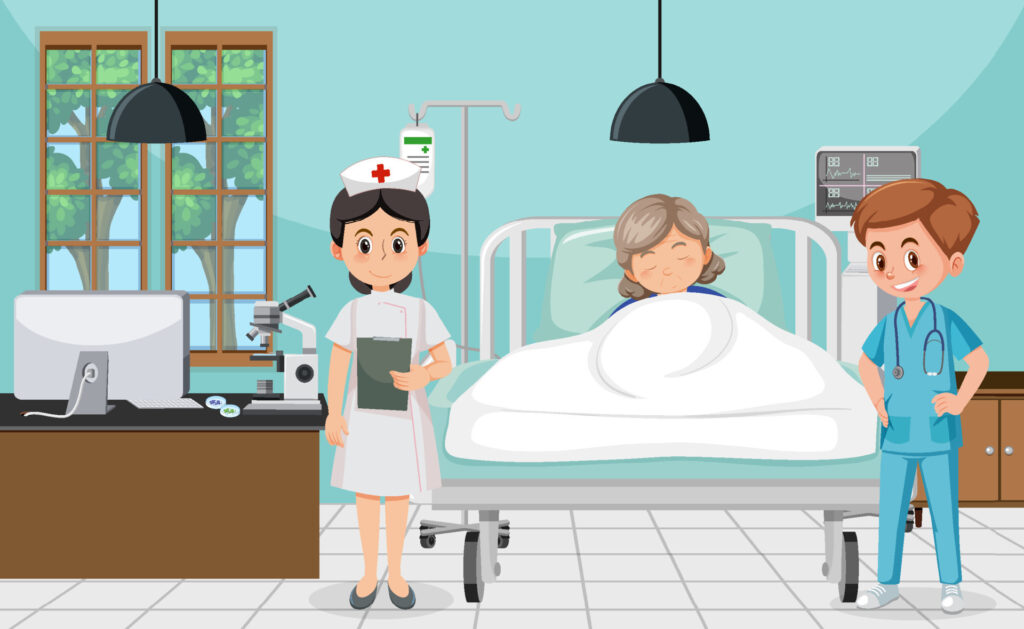Made Stress-Free Reliable Hassle-Free Convenient Pocket friendly
Request a call back
The surgery you need is
just a click away


21K +
Consultations

1180
Surgeries

100+
Partner Hospitals

10000+
Hassle-free Consultation

5000+
Smooth surgeries

500+
Expert Doctors

100+
Trusted hospitals

Affordable Fissure Surgery in Pune
Want to go through Mole removal surgery and have a healthy life at an affordable price with the best doctors in Pune? Get all kinds of Varicocele consultations for your surgery. Here at Aapkacare Health, we will provide the best surgeons.
- Laser Treatment
- Complete Insurance Support
- Minimal pain
- No Cost EMI
- 30 Minute Procedure
About Circumcision
Doctors & Hospitals
Why aapkacare
FAQ
What is an Anal Fissure?
Fissures are painful, often distressing conditions that can significantly impact one’s quality of life. This article discusses fissure treatment options, signs to look for, types of fissure surgery, and the benefits of laser surgery. If you’re seeking relief from this condition, you’ve come to the right place.

Identify the Signs of Anal Fissure
Pain during bowel movements
A sharp, stabbing pain while passing stool is a common symptom of an anal fissure.
Bright red blood in stool or on toilet paper
Fissures can cause bleeding during and after bowel movements.
Itching and burning
The affected area may feel itchy and uncomfortable.
Feeling a lump or skin tag
Sometimes, a small lump or skin tag may develop near the anal fissure.
Understand the causes of Anal Fissure
Here are some of the common causes of anal fissures

Hard or Large Stools
One of the most common causes of anal fissures is passing hard or large stools. This can stretch the anal canal and lead to tears in the delicate anal tissue.

Straining During Bowel Movements
Excessive straining during bowel movements, often due to constipation, can increase pressure in the rectum and lead to fissures.
Chronic Diarrhea
Frequent, watery bowel movements can irritate the anal area and make it more susceptible to fissures.

Anal Trauma
Physical trauma to the anal area, such as from a foreign object, rough wiping, or anal intercourse, can cause fissures.
Inflammatory Bowel Disease (IBD)
Conditions like Crohn’s disease and ulcerative colitis, which are forms of IBD, can lead to chronic inflammation and damage to the anal lining, increasing the risk of fissures.
Anal Conditions
Certain conditions like hemorrhoids, anal polyps, or tumors can pressure the anal lining and increase the risk of fissures.

Spasms of the Anal Sphincter
Abnormal or excessive spasms of the anal sphincter muscle can cause fissures or worsen existing cracks.
Childbirth
In some cases, women may develop anal fissures during childbirth due to the pressure and stretching of the anal canal.
Age
As people age, the anal tissue can become less elastic and more prone to injury, increasing the likelihood of fissures.

When to Seek Treatment
If you’re experiencing any of the signs mentioned above, seeking treatment promptly is crucial. Delaying treatment can lead to the fissure becoming chronic, which is harder to manage. At Aapkacare, we offer comprehensive care for cracks, ensuring comfort and well-being throughout treatment.
Several surgical options are available for fissure treatment. These include:
- Lateral Internal Sphincterotomy (LIS): This procedure involves cutting a small portion of the anal sphincter muscle to reduce spasms and promote healing.
- Advancement Flap Surgery: A portion of healthy tissue covers the fissure, promoting healing and preventing recurrence.
3. Laser Surgery: This minimally invasive procedure is becoming increasingly popular due to its benefits, which we’ll discuss in detail.
Laser surgery for fissures offers several advantages, including:
- Minimally Invasive: Laser surgery is less invasive than traditional procedures, which can lead to faster recovery times and reduced postoperative discomfort.
- Reduced Bleeding: Laser technology seals blood vessels during surgery, minimizing bleeding.
- Faster Healing: The precision of laser surgery promotes quicker healing, allowing you to return to your regular activities sooner.
- Lower Risk of Infection: The controlled use of laser energy reduces the risk of infection.
5. Minimal Scarring: Laser surgery leaves minimal scarring, ensuring comfort and aesthetic benefits.
After fissure surgery, it’s essential to follow your doctor’s advice closely. This may include dietary changes, proper hygiene, and taking prescribed medications. The goal is to ensure that you heal fully and avoid the recurrence of fissures.
Preventing fissures is essential for long-term health and well-being. Some preventive measures include:
- Fiber-rich Diet: A diet high in fiber can promote smooth bowel movements, reducing the risk of fissures.
- Adequate Hydration: Drinking enough water is crucial for softening stool.
- Proper Hygiene: Keeping the anal area clean and dry can help prevent fissures.
- Avoid Straining: Avoid excessive straining during bowel movements.
In conclusion, if you’re experiencing the signs of a fissure, don’t hesitate to seek treatment. At Aapkacare, we offer various fissure options, including advanced and minimally invasive laser surgery, to ensure your comfort and a speedy recovery. By taking preventive measures and addressing the
Anal fissures may cause pain. The sharpest part of this discomfort will come when you pass stools, and it may continue for a while after that.
Lidocaine creams and other topical painkillers can aid with localised pain, while ibuprofen and other anti-inflammatory painkillers can help with more widespread pain symptoms.
The anus muscles may relax and recover faster if you take warm showers frequently. Some pain symptoms may be lessened as a result.

Benefits of Laser Treatment
|
EXPERIENCE
|
OPEN SURGERY
|
LASER SURGERY
|
|---|---|---|
|
CUT
|
LONG
|
MINIMAL
|
|
PAIN
|
PAINFUL
|
MILD
|
|
STITCHES
|
MULTIPLE
|
MINIMAL
|
|
HOSPITAL STAY
|
LONG
|
ONE DAY DISCHARGE
|
|
RECOVERY
|
SLOW
|
FAST
|
About our Doctors & Hospitals
all your queries.

To consult our skilled surgeons for any problems or to undergo Fissure surgery, visit the nearest Fissure clinic in Pune with Aapkacare Health. You can also schedule an online appointment and speak with the doctor live on video. Make an appointment at Aapkacare Health to speak with the top Fissure surgeons in Pune. The Pune Aapkacare Health multi-speciality clinics for Fissure are sanitised, COVID-safe, and well-equipped. Book an appointment for the most advanced Fissure procedure in Pune.
Our Aim is to keep you healthy
Receive Expert Care
We find the finest doctors & facilities for your procedure

Zero Paperwork
We take care of all the paperwork so that you can relax

Hassle-Free Insurance
We work directly with your insurance provider for fast approvals

Get Home Sooner
Our advanced procedures help you recover faster and more safely

Are you worried about the cost of Fissure treatment?
Aapkacare Health finds you the most affordable prices for your Fissure in Pune. Even so, the exact cost is hard to pinpoint since your Fissure surgery cost depends on various factors such as age, medical history, type of surgery, etc. Call us today to get a personalised cost breakdown.

Your journey with Aapka Care Health


You might have a fissure if you observe constipation that lasts a long time and makes one struggle to go to the bathroom, especially if the stool is thick, hard, or dry. You should see a fissure doctor right away to get evaluated.
The fissure doctor could advise surgery if your fissure hurts or seems to be enlarging constantly. The majority of Fissure operations are performed as outpatient procedures. The surgeon will make an incision, remove or replace the tissue, and then close the wound.
However, a fissure may be the source of discomfort and agony, with signs and symptoms frequently getting worse while standing, exerting oneself, or moving heavy objects.
Anal fissures typically appear as tiny cuts or tears in the anus lining. A chronic anal fissure resembles a deep tear, but an acute anal fissure looks like a recent tear. Fleshy growths may be present inside or outside chronic anal fissures.
Anal fissures are not inherited. Anal fissures do not carry any genetic material and are not handed down through the generations. Poor anal cleanliness and constipation, as well as other lifestyle and nutritional choices, are the main causes of an anal fissure; genetics are not a key contributing factor.
Fissures can occur at any age if you live an unhealthy lifestyle.
Fiber-rich food like citrous fruits, broccoli, green leafy vegetables and Probiotic food
No. Anal fissures do not cause or predispose to colon cancer. But comparable symptoms can also be brought on by more severe illnesses. Your colon and the rectal surgeon could want more testing even after a fissure has fully healed. A colonoscopy might be performed to rule out additional causes of rectal bleeding.
The inner lining of the anus is frequently damaged during bowel movements, which leads to fissures. This may be the result of either a firm, dry bowel movement or frequent, loose bowel motions. Anal fissure development is more likely in patients with a tight anal sphincter muscle.
Anal fissures frequently result in severe pain with bleeding. This discomfort could linger for a few minutes or several hours. Because of this, many people may attempt to avoid having bowel movements to stop the pain. Additional signs include: After a bowel movement, bright red blood might be seen on the toilet paper or stool. Skin tag or small lump on the skin near the anal fissure, more common if chronic or present for more than 7 weeks.
Aapkacare Health provides trusted facilities with the best clinical outcome. Anal Fissure are one of the most common treatable, and curable health issues. We are here with a convenient surgical journey for you. Aapkacare Health is your ally as you work to improve your own health and the health of your family and friends. Aapkacare Health helps people choose the best surgical option for their medical condition and is dedicated to providing high-quality care at an affordable price. To give its clients the best care possible, Aapkacare Health has multiple clinics, together with numerous partner hospitals and 200 surgeons. For common maladies including piles, kidney stones, hernias, anal fissures, and other unsettling medical issues, Aapkacare Health offers world-class care. Additionally, Aapkacare Health assists in obtaining simple financing, such as no-cost EMI choices, and manages insurance claims and other paperwork throughout the entire process until post-surgery recovery. Our mission is to improve access to high-quality healthcare and make it convenient, inexpensive, and available to all people.
A few days after fissure surgery, the majority of patients may resume their normal routines, including going to work. It may take 4 to 8 weeks for full recovery following both medical and surgical procedures. Maintaining healthy bowel habits and eating a high-fiber diet are crucial even when the discomfort and bleeding subside. Healing may be slowed down by persistent hard or loose stools, scarring, or internal anal muscle cramps
It is extremely common for a totally healed fissure to reopen after a hard bowel movement or other injuries since fissures can quickly reoccur. It is crucial to maintain healthy bowel habits and a diet high in fibre as a continuous lifestyle change, even after the discomfort and bleeding have stopped. If the issue recurs without a clear reason, additional analysis might be necessary.
A fissure that doesn’t respond to preventative treatments needs to be reevaluated. Healing takes longer when there are ongoing hard or loose bowel motions, scarring, or internal anal muscle cramps. Anal fissure-like symptoms can also be brought on by other medical conditions such as anal tumours, infections, or inflammatory bowel disease like Crohn’s disease. Repeated tests and evaluation should be performed on patients who have ongoing anal pain to rule out these illnesses. This could involve a colonoscopy as well as a surgical examination with biopsies and tissue cultures under general anaesthesia.
No, Aapkacare Health is only a platform provider. It does not own any hospital. Aapkacare Health works in partnership with other hospitals. It uses doctors and surgeons from the hospitals or independent qualified surgeons to perform the surgeries, leveraging the medical infrastructure of the partnered hospitals.



